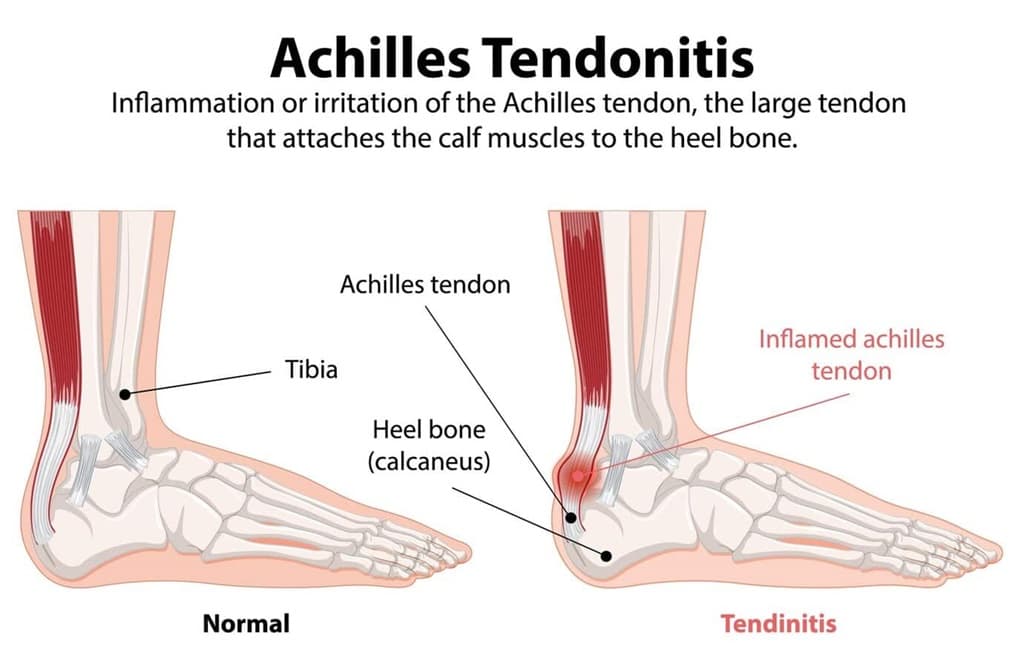Physical therapy schools in Texas offer a wide variety of programs for aspiring physical therapists looking to enter this dynamic field. With the employment rate for physical therapists continuing to grow across healthcare settings, obtaining a graduate degree from an accredited university has become an essential first step toward a successful career in physical therapy.
Selecting the right physical therapy program requires careful consideration of admission requirements, prerequisite courses, and the overall study experience. Texas is home to both public and private institutions offering Doctor of Physical Therapy (DPT) degree programs with varying program lengths and admission options.
This article provides a comprehensive guide to physical therapy schools in Texas, detailing everything from admission requirements to contact information, helping pre-physical therapy students make informed decisions about their education and future careers in the physical therapy profession.
Why Choose a Career in Physical Therapy?
The field of physical therapy offers not only a rewarding opportunity to help others but also strong career prospects. According to the U.S. Bureau of Labor Statistics, employment of physical therapists is expected to grow 14% from 2023 to 2033, which is significantly faster than the average for all occupations. This growth is driven by an aging population, increased focus on mobility and wellness, and the need for rehabilitative care following injuries or chronic conditions.
How to Become a Physical Therapist in Texas
To practice as a physical therapist in the U.S., one must earn a Doctor of Physical Therapy (DPT) degree from a program accredited by the Commission on Accreditation in Physical Therapy Education (CAPTE) and pass a state licensure exam. All the schools listed below offer accredited programs that meet these requirements, preparing students for successful careers in physical therapy.
What to Consider When Choosing a Physical Therapy School in Texas
Before diving into specific schools, it’s important to understand the key factors that should influence your decision when selecting a physical therapy school in Texas:
Accreditation and Program Quality
Ensure the program is accredited by the Physical Therapy Association or relevant accrediting bodies. Accreditation ensures that the physical therapist education program meets established standards of quality and prepares students adequately for national licensure exams.
Public vs. Private Tuition Implications
Tuition rates vary significantly between public and private institutions. Public universities often offer lower tuition for in-state residents, while private universities may have higher costs but sometimes offer more financial aid or scholarship opportunities.
Program Length and Start Dates
DPT programs typically range from 2 to 3 years of full-time study. Some programs offer accelerated options, while others follow a more traditional academic schedule. Start dates also vary, with programs beginning in summer, fall, or spring semesters.
GRE and Resume Requirements
Many physical therapy schools require competitive scores on the Graduate Record Examination (GRE). Some schools may also request a resume highlighting relevant healthcare experience, leadership experience, or extracurricular activities.
Campus Location and Clinical Opportunities
Consider the location of clinical rotations and clinical settings offered by each program. Clinical experiences are crucial for developing clinical skills and clinical expertise in various aspects of physical therapy practice, including orthopedic physical therapy, manual therapy, and pulmonary rehabilitation.
List of Accredited Physical Therapy Schools in Texas
Baylor University – Waco
Baylor University’s School of Physical Therapy, part of the Robbins College of Health and Human Sciences, offers a hybrid DPT program that combines online coursework with on-campus labs. The program emphasizes both clinical application and research.
Type: Private | Length: 2 years (Hybrid) | Start: Spring GRE: Yes | Resume: No Director: Brian Young, PT, DSc Website: Baylor DPT Program Phone: 254-710-8999 | Email: [email protected]
The physical therapy curriculum at Baylor includes comprehensive coursework in basic science, examination techniques, and rehabilitation interventions. Students complete multiple full-time clinical education experiences throughout the program, preparing them for a wide range of clinical settings.
University of Texas – Multiple Campuses
The University of Texas System houses several excellent physical therapy programs across the state:
University of Texas Southwestern – Dallas
Located in the College of Health and Public Service, UT Southwestern’s Department of Physical Therapy offers a rigorous program focusing on evidence-based practice.
Type: Public | Length: 2.6 years | Start: Summer GRE: Yes | Resume: No Director: Ross Querry, PT, PhD Website: UT Southwestern DPT Phone: 214-648-1664
The program includes extensive training in evaluation of movement disorders and patient care across the human body’s range of functions.
UT Health Science Center San Antonio
This program emphasizes clinical skills development and health promotion and wellness in addition to traditional physical therapy training.
Type: Public | Length: 3 years | Start: Summer GRE: Yes | Resume: Yes Director: Greg Ernst, PT, PhD Website: UT Health San Antonio Phone: 210-567-8757
Students gain experience working with a wide variety of patients, including those with cerebral palsy and other conditions requiring specialized care.
Hardin-Simmons University DPT Program – Abilene
The Hardin-Simmons University DPT program offers a Christian perspective on healthcare while maintaining rigorous academic standards.
Type: Private | Length: 2.3 years | Start: Fall GRE: Yes | Resume: No Director: Jill Jumper, PT, DPT, PhD Website: HSU DPT Phone: 325-670-1928 | Email: [email protected]
The program features small class sizes, allowing for personalized attention from faculty advisors. Students develop professional skills through didactic coursework and practical examinations focusing on body mechanics and motor learning.
Texas Woman’s University – Dallas & Houston Campuses
Texas Woman’s University offers physical therapy programs at both Dallas and Houston locations.
Type: Public | Length: 2.75 years | Start: Fall GRE: Yes | Resume: Yes Directors: Mark Weber (Dallas), Katy Mitchel (Houston) Dallas Website: TWU Dallas Houston Website: TWU Houston Email: [email protected]
The program emphasizes evidence-based practice and offers specialized tracks in pediatric physical therapy, orthopedic physical therapy, and more.
University of North Texas Health Science Center – Fort Worth
Type: Public | Length: 2.75 years | Start: Summer GRE: No | Resume: No Director: Myles Quiben, PT, PhD, DPT Website: UNTHSC Phone: 817-646-4991 | Email: [email protected]
This program features innovative teaching methods and strong community partnerships for clinical rotations. Students benefit from interdisciplinary learning opportunities with other health care professionals.
Angelo State University – San Angelo
Type: Public | Length: 3 years | Start: Summer GRE: Yes | Resume: No Director: Kendra L. Nicks, PT, ScD Website: Angelo State DPT Phone: 325-942-2545 | Email: [email protected]
The program offers strong clinical experiences in rural and underserved areas, with a focus on developing versatile therapists who can work in a wide range of healthcare settings.
Texas State University – Round Rock
Type: Public | Length: 3 years | Start: Summer GRE: Yes | Resume: No Director: Janet R. Bexner, PT, DPT, PhD Website: Texas State DPT Phone: 512-716-2652 | Email: [email protected]
Texas State’s program emphasizes research and evidence-based practice, with opportunities for international clinical experiences.
University of Texas Medical Branch – Galveston
Type: Public | Length: 3 years | Start: Fall GRE: Yes | Resume: No Director: Janna McGaugh, ScD, PT Website: UTMB Physical Therapy Phone: 409-772-3068
Students benefit from the medical branch setting, with extensive opportunities to work alongside other healthcare students in interdisciplinary teams.
University of St. Augustine Health Sciences – Austin & Dallas
Type: Private | Length: 2.75–4 years | Start: Spring/Summer/Fall GRE: Yes | Resume: Yes Directors: Manuel Domenech (Austin), Thomas Werner (Dallas) Website: USA Health Phone: 800-241-1027 | Email: [email protected]
This program offers flexible scheduling options and specializations in various areas of physical therapy practice.
University of Texas at El Paso
Type: Public | Length: 3 years | Start: Summer GRE: Yes | Resume: No Director: Alvaro Gurovich, PT, PhD Website: UTEP DPT Phone: 915-747-7248 | Email: [email protected]
UTEP’s program places special emphasis on border health issues and serving culturally diverse populations.
University of the Incarnate Word – San Antonio
Type: Private | Length: 2.4 years | Start: Fall GRE: Yes | Resume: No Director: Stephen Goffer, PT, DPT, PhD Website: UIW DPT Phone: 210-283-6477 | Email: [email protected]
This program incorporates service learning and community engagement throughout the curriculum.
Texas Tech University Health Sciences Center – Lubbock, Amarillo, Odessa
Type: Public | Length: 3 years | Start: Summer GRE: Yes | Resume: No Director: Kerry Gilbert, PT, ScD Website: TTUHSC DPT Phone: 806-743-4525 | Email: [email protected]
With multiple campus locations, this program offers diverse clinical settings and experiences across West Texas.
US Army Baylor – Fort Sam Houston
Type: Public | Length: 2.5 years | Start: Spring GRE: Yes | Resume: No Director: Carrie Hoppes, PT, PhD Website: Army-Baylor DPT Phone: 210-221-6457 | Email: [email protected]
This unique program trains military physical therapists and features exceptional facilities and resources.
University of Mary-Hardin Baylor – Belton
Type: Private | Length: 2.3 years | Start: Fall GRE: No | Resume: Yes Director: Dr. Barbara Gresham, PT, DPT Website: UMHB DPT Phone: 254-295-4921 | Email: [email protected]
UMHB offers a faith-based approach to physical therapy education with strong clinical partnerships.
Application Process for Physical Therapy Schools in Texas
Most physical therapy schools in Texas require application through the Physical Therapy Centralized Application Service (PTCAS). The application typically includes:
- Academic record and official transcripts showing completion of prerequisite courses
- GRE scores (for most programs)
- Letters of evaluation from professors or healthcare professionals
- Documentation of observation hours or healthcare experience
- Personal statement or essays
Common majors for pre-physical therapy students include kinesiology, biology, and exercise science, though students can pursue any degree-granting major as long as they complete the necessary prerequisite courses for science majors. These typically include:
- Anatomy and Physiology
- Chemistry
- Physics
- Statistics
- Psychology
Conclusion
Choosing the right physical therapy school in Texas is a crucial step toward becoming a successful physical therapist. Each program offers unique strengths and opportunities for clinical experiences, academic growth, and professional development.
Prospective students should carefully consider their personal preferences, learning styles, and career goals when selecting a program. It’s highly recommended that interested applicants contact each school’s enrollment advisor or Office of Health Professions directly for the most up-to-date information on admission requirements, application deadlines, and program details.
By planning ahead and thoroughly researching each program, future physical therapists can find the educational experience that best prepares them for the licensure examination and a rewarding career helping patients improve their physical abilities and quality of life.
FAQs About Physical Therapy Schools in Texas
What GPA do I need to get into a PT program in Texas?
Most programs require a minimum GPA of 3.0, but competitive applicants typically have GPAs in the 3.5-3.8 range. Previous admission scores can provide insight into a program’s competitiveness.
Can I apply without the GRE?
A few programs like the University of North Texas Health Science Center and University of Mary-Hardin Baylor don’t require the GRE, but most do. Check individual school websites for the most current requirements.
Are hybrid DPT programs available in Texas?
Yes, Baylor University offers a hybrid program that combines online coursework with on-campus lab components, allowing for more flexible study options.
What clinical experiences will I gain during my DPT program?
Students typically complete multiple full-time clinical education experiences in diverse settings, including hospitals, outpatient clinics, rehabilitation centers, schools, and specialty practices focusing on areas like orthopedic physical therapy or pediatrics.
James Foster, PT is a licensed physical therapist with over 11 years of hands-on experience in helping individuals improve mobility and live pain-free. As a health writer, James shares expert advice, rehabilitation strategies, and wellness tips to empower readers toward healthier, stronger lives.



